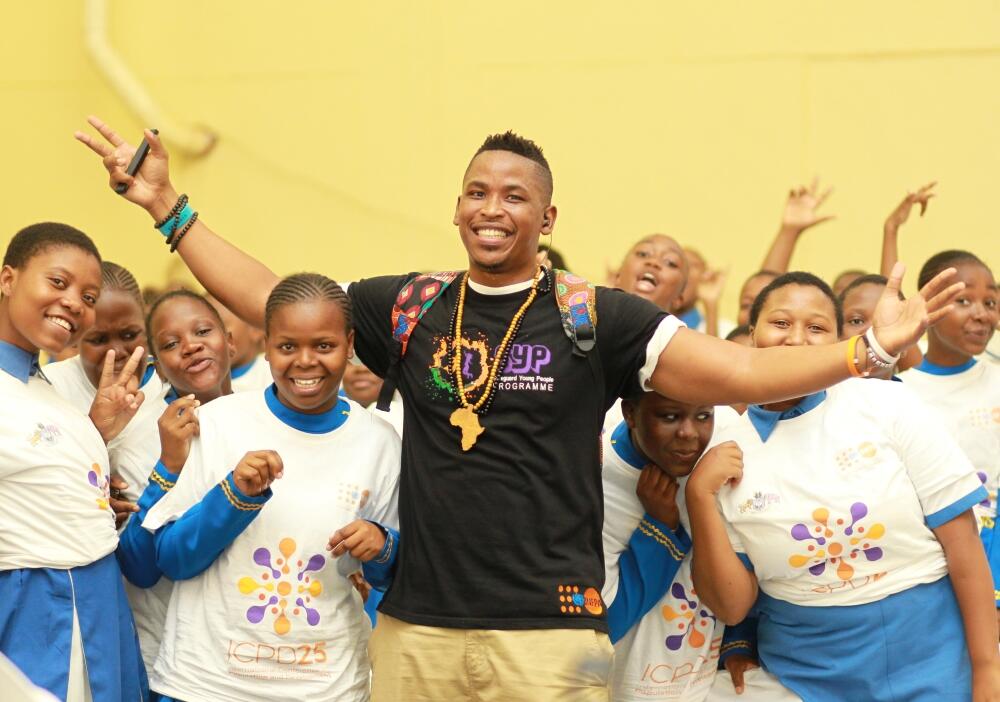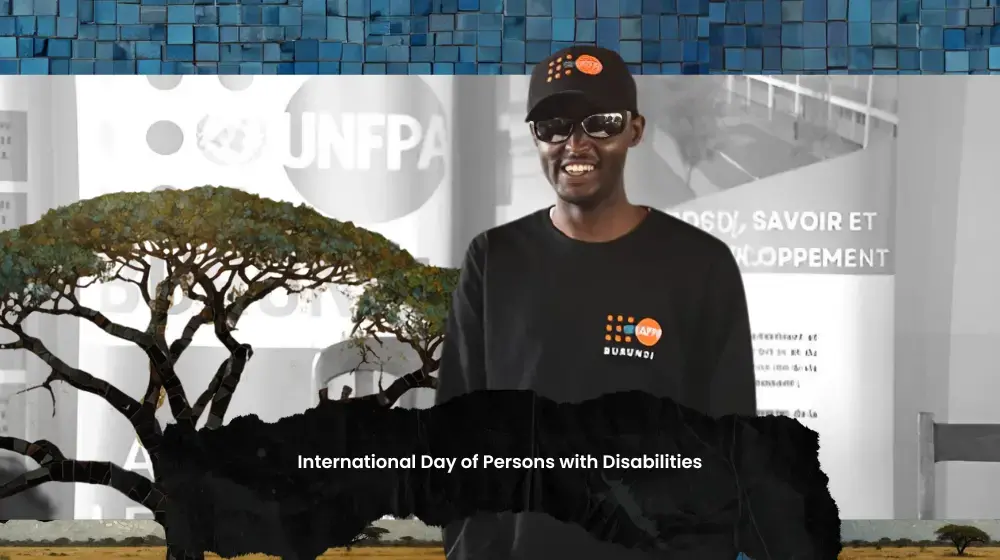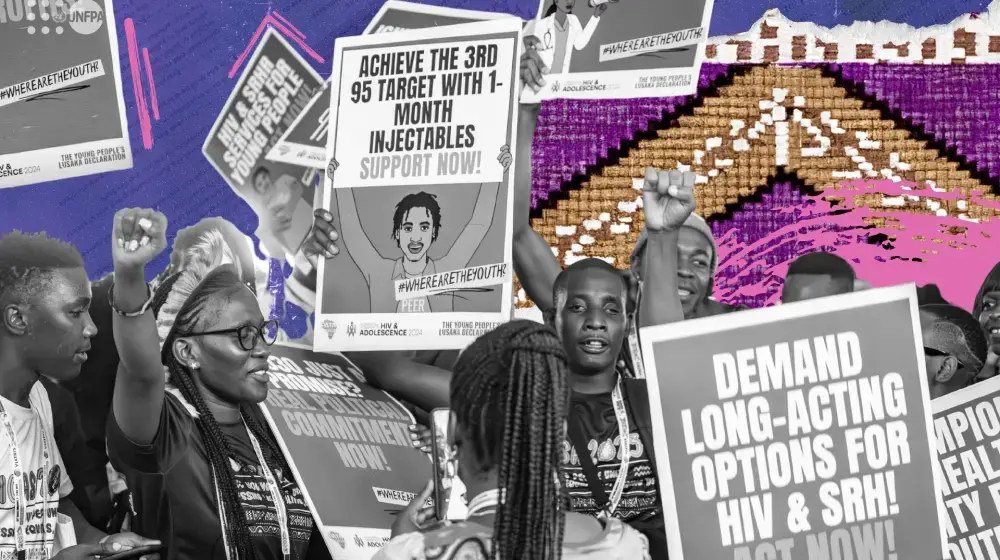Manzini, ESWATINI—Eswatini’s lowered fertility rate now averages 3.3 births per woman, compared to 6.4 births per woman during the decade preceding the International Conference on Population and Development (ICPD), held in 1994.
This was revealed by the Prime Minister of the Kingdom of Eswatini, His Excellency Ambrose Mandvulo Dlamini, during the launch of the double celebrations of 25 years of the ICPD and 50 years of UNFPA, at Mavuso Trade Centre in Manzini on 14 March.
Having fewer children has given women more time to focus on other productive activities, he said. Labour force participation rates rose from 32 per cent in 1997 to 47 per cent in 2016.

productive activities, said Eswatini Prime Minister, Ambrose Mandvulo
Dlamini. © UNFPA Eswatini/Zwide Ndwandwe
Eswatini committed to women’s empowerment, equality
“The country is fully committed to gender equality and the empowerment of women, and has ratified a number of regional, continental and international instruments as a demonstration of this commitment,” the Prime Minister said.
He re-affirmed the government’s commitment to the ICPD Programme of Action and said the country was ready to work diligently towards achieving its goals and objectives.
“To this end, plans are underway to review our National Population Policy to enhance its relevance and effectiveness, and ensure that it incorporates emerging issues in keeping with the national and global development agenda on the sustainable development goals,” he added.
The Government of Eswatini and UNFPA partnered in the launch of a series of events celebrating ICPD25 and UNFPA50 celebrations.
Present were Eswatini cabinet ministers, members of parliament, senior government and United Nations officials, including UN Eswatini Resident Coordinator Nathalie Ndongo-Seh, traditional and religious leaders, and representatives of civil society organizations, the private sector, youth and Manzini informal traders.
The launch began with a three-kilometre-long march from the centre of the most populous city in Eswatini, Manzini, to Mavuso Trade Centre for the official launch.
Young people add their voices

to intergenerational sexual relationships with older men, known as
‘blessers’, said Nonhle Mhlongo, 15, a student at Swazi National
High. © UNFPA Eswatini/Zwide Ndwandwe
Nonhle Mhlongo, 15, a Form 3 student at Swazi National High, spoke on what ICPD means to the adolescent girl in Eswatini. She outlined the challenges that she and her peers face, 25 years since the landmark ICPD in Cairo.
The girl child is still susceptible to sexual abuse, teenage pregnancy, HIV and gender-based violence, she said. Poverty remains at the centre of the girl child’s challenges and leads to intergenerational sexual relationships with older men, known as ‘blessers’ of the girl child and her siblings.
Nkosing’zwile Mkhabela, 17, a Form 5 student at at Swazi National High, said there is an urgent need for a focus on the boy child as well, as they suffer various forms of abuse which, if not attended to, could lead to them becoming perpetrators of GBV due to anger issues.
“Men and boys end up resorting to unhealthy coping mechanisms because gender equality focuses on girls alone,” Nkosing’zwile said.
Taking one step forward and two steps back

Director, with other participants on the march to Manzini in support
of sexual and reproductive health and rights. © UNFPA Eswatini/
Zwide Ndwandwe
UNFPA East and Southern Africa Regional Director Dr. Julitta Onabanjo, who had visited a male-empowerment centre in Eswatini, said this was a sign that boys were not being left behind.
Although strides have been made in a number of areas, losses have also been experienced and as a result, some of the gains remain under threat due to new emerging issues such as climate change. “We take one step forward and two steps back,” she said.
Dr. Onabanjo said the country had made progress in addressing critical areas, including the enactment of the Sexual Offences and Domestic Violence Act of 2018; reductions in new HIV infections; and conducting a digital census, which is critical for planning, monitoring, reporting and accountability, as well as ending the invisibility of the most vulnerable members of society.

enactment of the Sexual Offences and Domestic Violence Act of 2018,
reductions in new HIV infections, and conducting a digital census.
© UNFPA Eswatini/Zwide Ndwandwe
Dr. Onabanjo commended the Government of Eswatini for a decrease in the Total Fertility Rate, which she attributed to an increase in access to voluntary family planning services, with 66 per cent of women of reproductive age using modern methods of contraception.
UNFPA Safeguard Young People (SYP) programme ambassador, Thamsanqa “KrTC of Hip Hop” Sibandze, gave a stellar performance on the problem of multiple concurrent partners, entitled ‘Makhwapheni’. He sent a stern warning to girls to be in control of their bodies and their minds, and not to give themselves to men who are in their lives not for love but to gratify themselves.
- Lindiwe Siyaya





